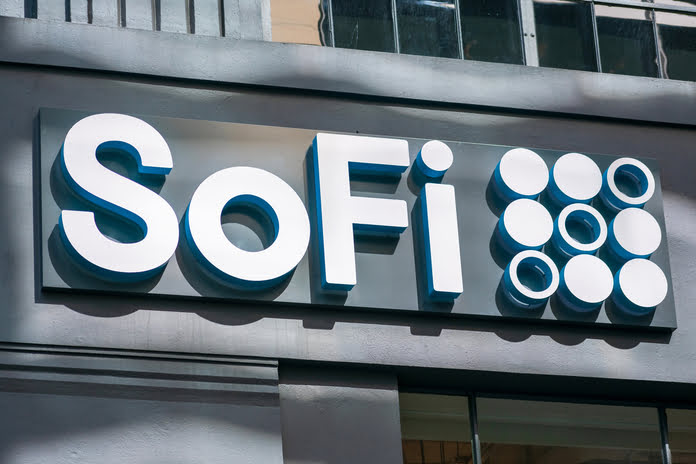Established in 2011, SoFi Technologies (NASDAQ:SOFI) stands as a prominent financial technology (fintech) entity, seamlessly merging borrowing, investing, saving, financial planning, and various other services. Originating with student loan refinancing, the company has broadened its scope to encompass personal loans, banking services, investing and wealth management, and mortgage lending. Noteworthy is SoFi’s remarkable annual adjusted net revenue growth, soaring more than eightfold since fiscal 2018.
While many fintech companies faced challenges in the past year due to escalating interest rates, SoFi exhibited adaptability to evolving financial trends, proving its resilience by registering a robust 115% stock surge in the previous year. The integration of artificial intelligence (AI) into diverse industries is currently fostering growth opportunities for fintech companies, and SoFi is no exception. Despite its historical lack of profitability, the company’s recent fourth-quarter results, reporting a GAAP profit that surpassed consensus estimates, have sparked renewed interest.
SoFi’s Fourth Quarter Triumph
Amid geopolitical and macroeconomic challenges affecting the fintech sector, SoFi concluded 2023 on an exceptional note. The success can be attributed to its comprehensive financial platform, offering services ranging from student loan refinancing to investment management. In Q4, SoFi expanded its membership by 585,000, reaching a total of over 7.5 million members. Additionally, the introduction of 695,000 new products contributed to a remarkable 41% year-over-year increase in total products, totaling 11.1 million. This surge in customer base translated to a substantial 34% year-over-year rise in adjusted revenue, reaching $594 million.
Operating through three segments – Lending, Technology Platform, and Financial Services – SoFi’s CEO, Anthony Noto, highlighted record revenue performances in each segment. Notably, the Financial Services segment, offering checking and savings accounts, debit and credit cards, and cash management products, experienced an impressive 115% year-over-year revenue increase. This surge led to a notable GAAP profit of $47.9 million in the first quarter, compared to a $40 million loss in the prior year quarter.
What Lies Ahead for SOFI Stock?
Bolstered by a robust finish to the preceding year, SoFi’s management foresees adjusted net revenue ranging between $550 million and $560 million in the first quarter of 2024, coupled with a GAAP net income of $10 million to $20 million. Projections for the entire year 2024 anticipate a 92% to 95% increase in lending segment revenue, while non-lending segments combined are expected to grow by 50%. GAAP earnings for the year could range from $0.07 to $0.08 per share. Looking beyond 2024, the company projects compounded revenue growth of 20% to 25% between 2023 and 2026.
Despite ambitious targets, SoFi’s steady increase in membership, rising revenue, and newfound profitability provide a strong foundation. The recent resumption of federal loan repayments and the strategic implementation of AI further enhance its position. The company’s announcement of expanded investment options for members, including mutual funds and alternative investments, adds to the optimistic outlook.
Wall Street’s Perspective on SOFI Stock
Wall Street maintains a “hold” rating for SOFI stock, with 21 analysts covering the stock. Six analysts recommend a “strong buy,” 12 suggest a “hold,” one advises a “moderate sell,” and two propose a “strong sell.” The average price target of $9.47 implies an 18% potential upside in the next 12 months. A Street-high target price of $15 suggests an 88% potential upside from current levels. Presently, SOFI stock is valued at 3.6x forward sales, seemingly reasonable when compared to its three-year historical price-to-sales ratio average of 6.4x.
A Closer Look at SOFI’s Current Position
Despite outstanding fourth-quarter results and a positive outlook, the majority of analysts maintain a “hold” rating on the stock. While this may not necessarily be a negative indicator, the prevailing macroeconomic headwinds could potentially limit immediate opportunities. However, considering that these challenges are transient, investing in SOFI stock at this juncture may position investors to reap greater rewards as the company capitalizes on improved market conditions, leading to heightened revenue and profits.
Featured Image: Megapixl














